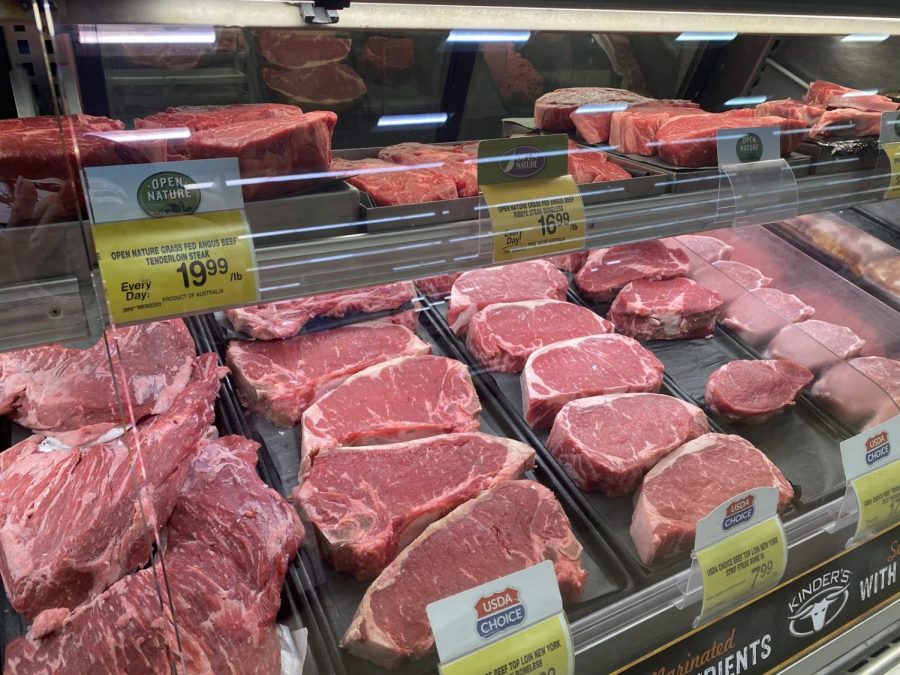Why decreasing your meat consumption should be on your 2021 resolution list
When going to your local grocery store, make sure to look for meat from reliable farms, for the animal’s health and yours.
January 20, 2021
Meat is a crucial part of many diets and even lifestyles. But the controversy over its impact on the environment as well as human health is important to understand.
Treatment of animals
The obvious concern is for animals and their well-being. Approximately 50 billion animals of the 70 billion farmed every year are confined to overcrowded cages and inhumane treatment during their short, miserable lives.
“Reducing your meat consumption will make a huge difference to the lives of these animals and free-up resources to help move to higher welfare production,” said World Animal Protection.
The well-being of factory farmed animals has been brought to attention and can really change one’s opinion and even lifestyle.
“I became vegan because I always wanted to help animals however I could and when you see videos of slaughterhouses and you see the treatment of animals in those places it really changes your perspective,” said alumna Meghann Klein (‘20).
Environmental issues
Going fully vegan is a lifestyle change that requires much dedication. But animals aren’t the only reason to go green, mass farming causes environmental issues as well.
“Animal agriculture is responsible for around 14.5% of greenhouse gas emissions, which amounts to more exhaust from all transportation,” said Reducetarian Foundation.
This is mainly due to the overpopulation of cows, who produce large amounts of methane into the atmosphere. Reducing meat consumption would in turn reduce your carbon footprint.
Health concerns
The debatable side of this argument is the health concerns. Some believe that meat can increase heart risks, obesity, diabetes, and even cancer.
However, an article by Healthline used many studies to debunk these theories and concluded that “unprocessed and properly cooked meat has many nutrients and may have some health benefits. If you enjoy eating meat, there is no compelling health or nutritional reason to stop.”
The relation between certain health factors and meat-eaters is not solid enough to blame on the meat itself. Yet, there is a reason for those correlations.
“Cooking food at high temperatures or for long periods can increase the production of toxic byproducts capable of causing cancer,” said the Healthline article.
The alternative, vegan and vegetarian diets, have substantial health benefits because of the unprocessed and nutrient-rich food. Eating these foods usually provides for a lower caloric intake than a meat-eating diet, but it is all about portion control.
“My family eats meat and so do I, but we still eat healthy and get our vegetables and it’s not like we eat steak every single night,” said Robbie Dewar (‘23).
All in all, it is not about going completely vegetarian or vegan, but it is about being mindful of where your animal products come from, what kind, how it is prepared, and how much you consume.





